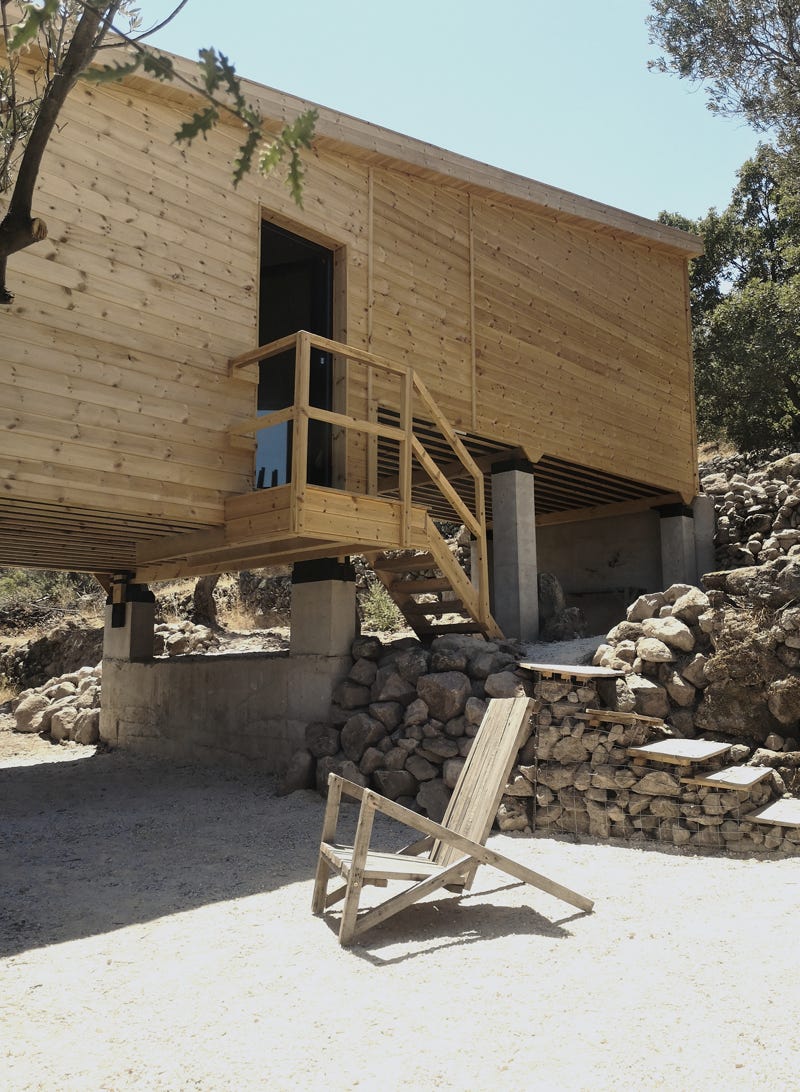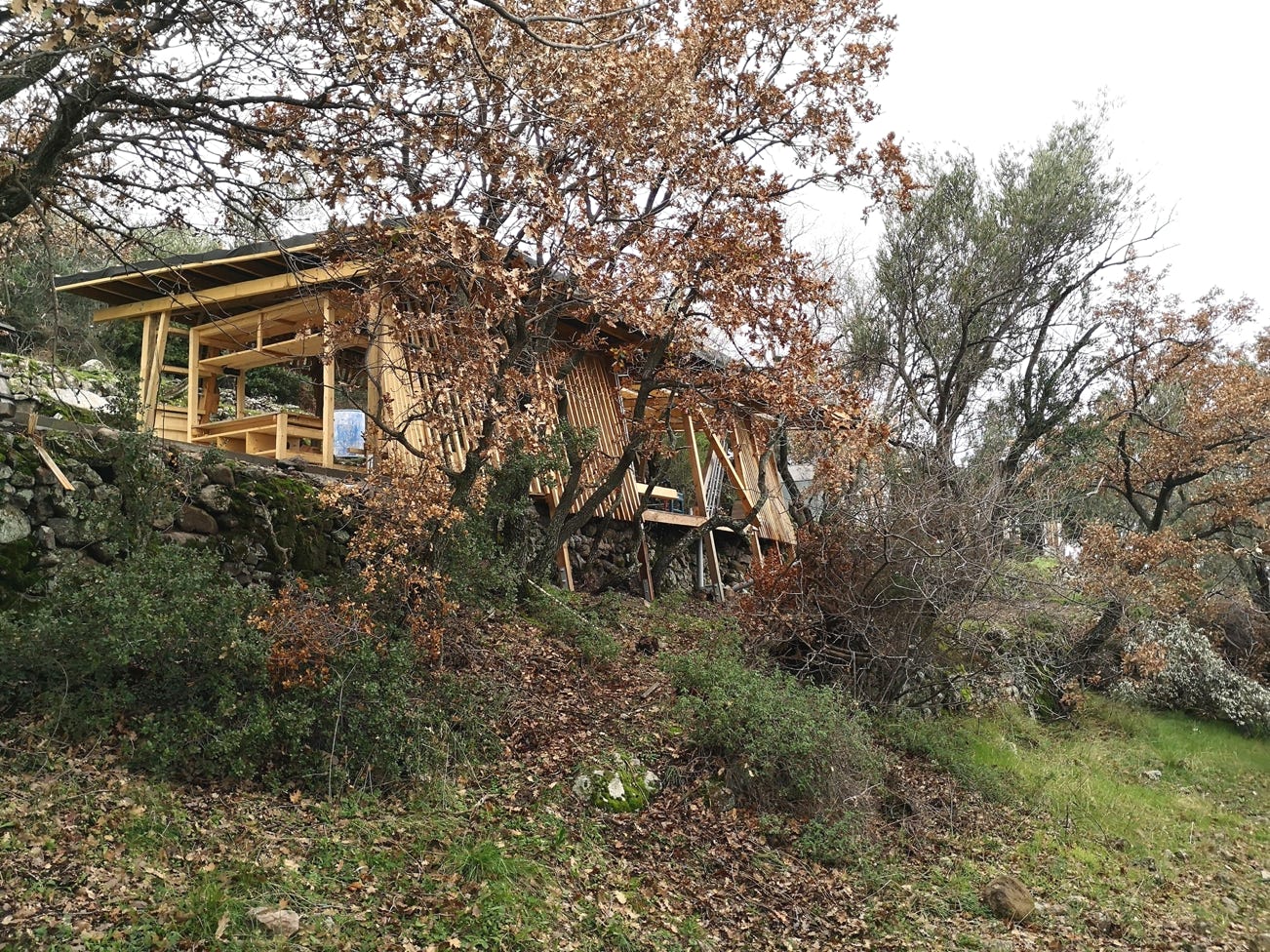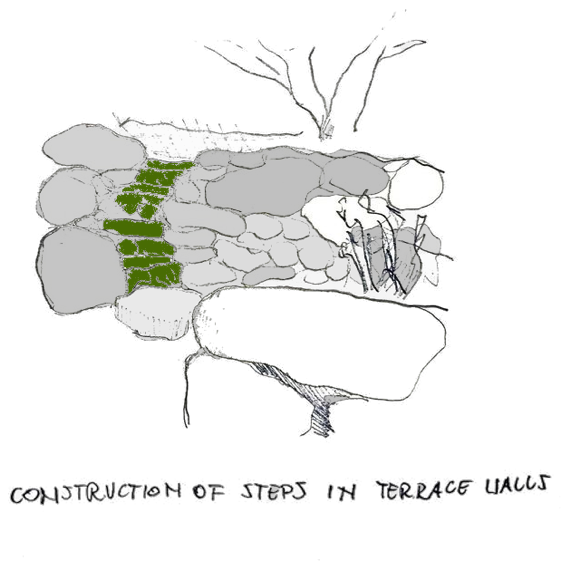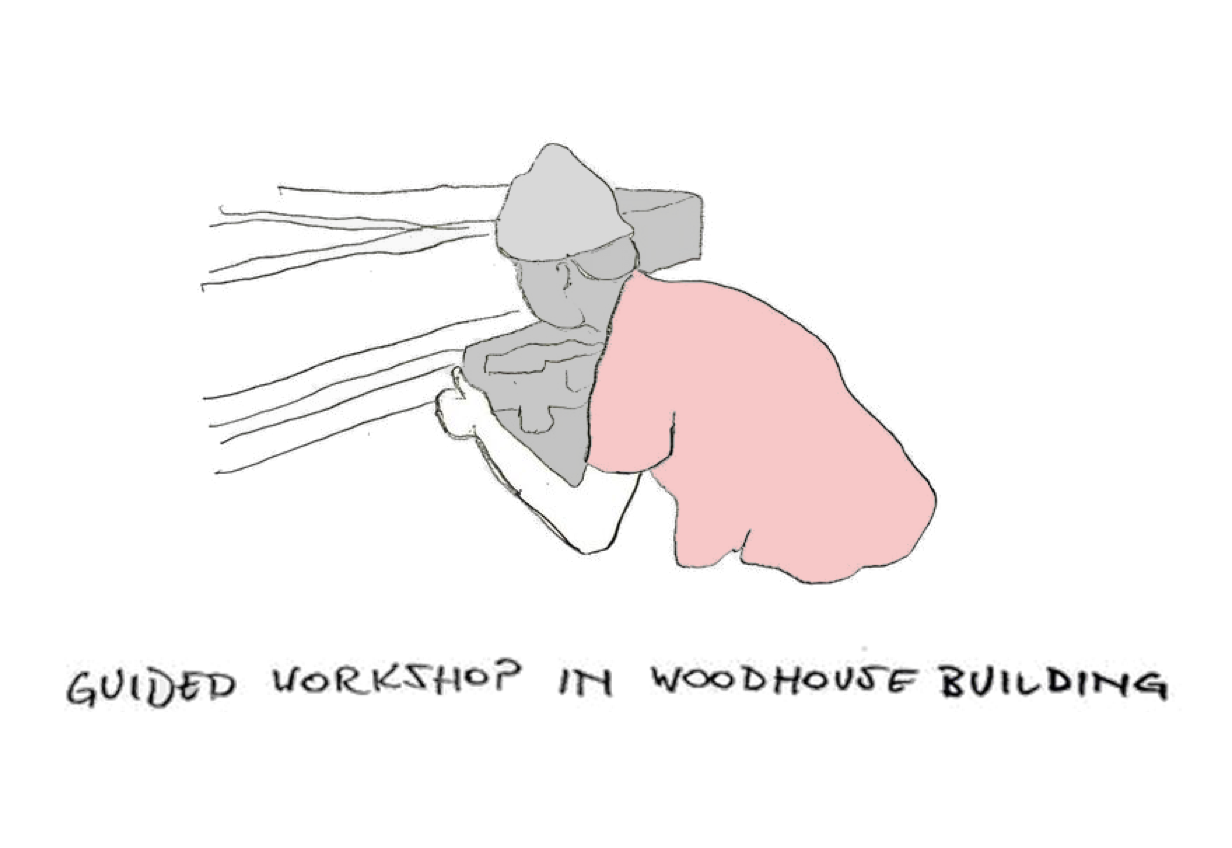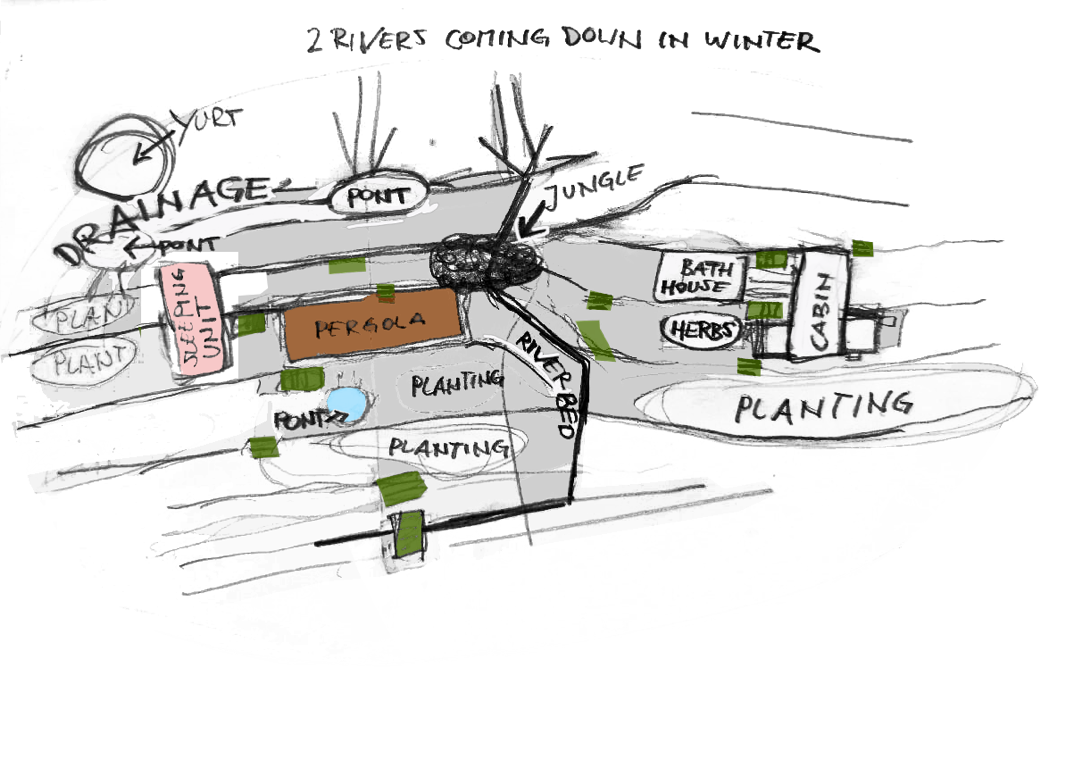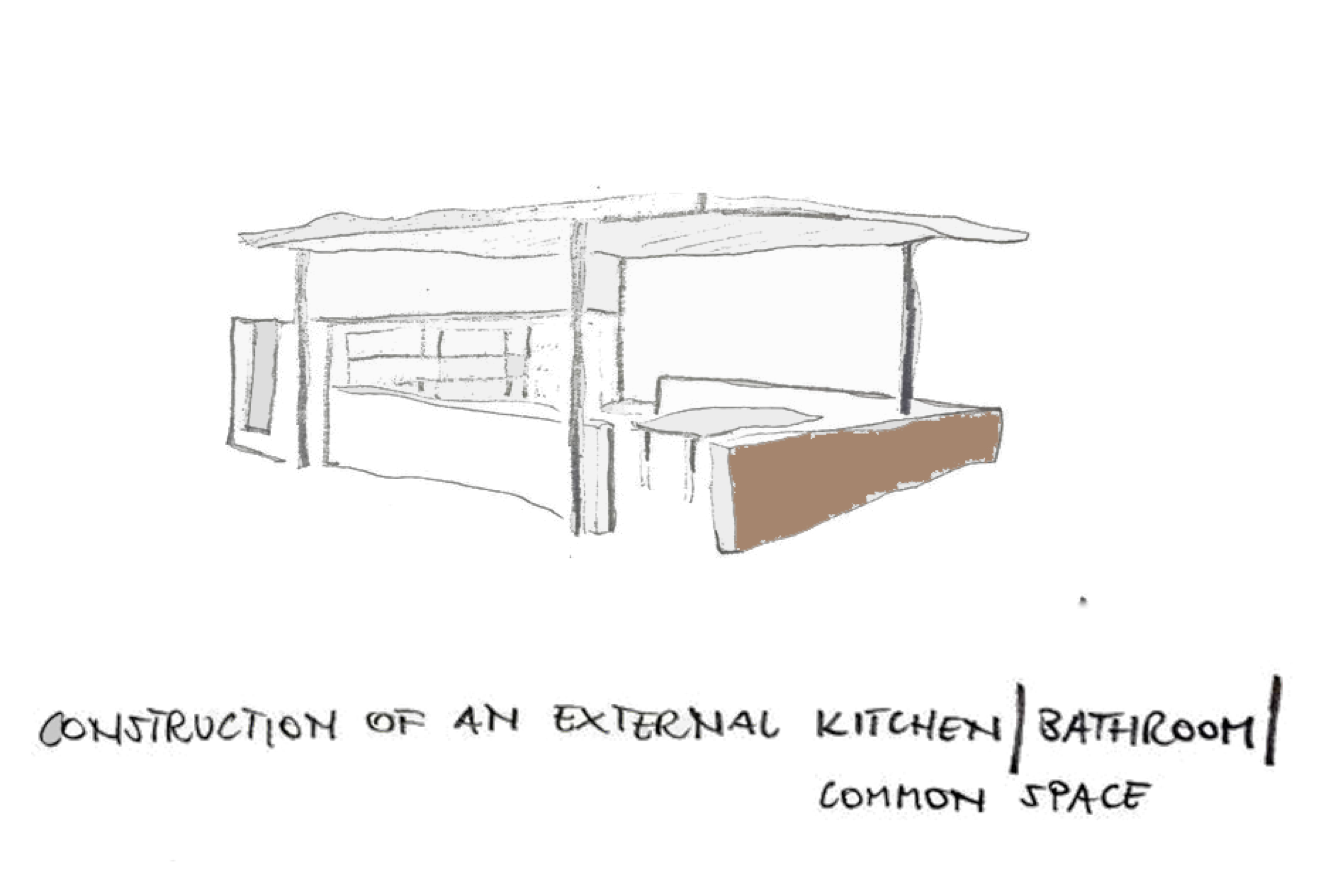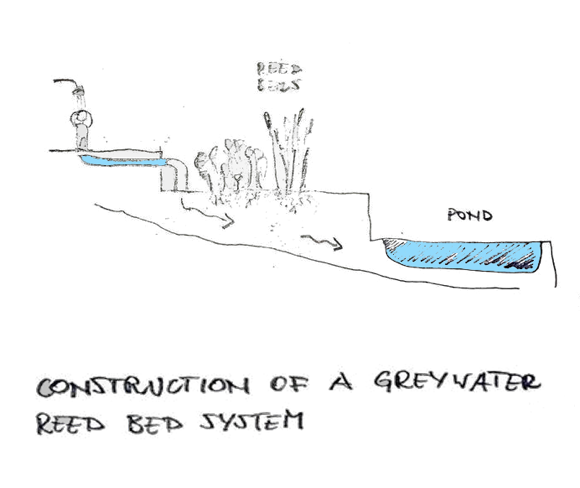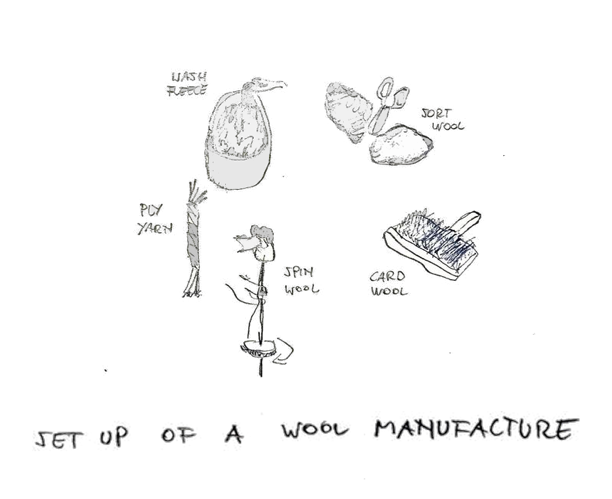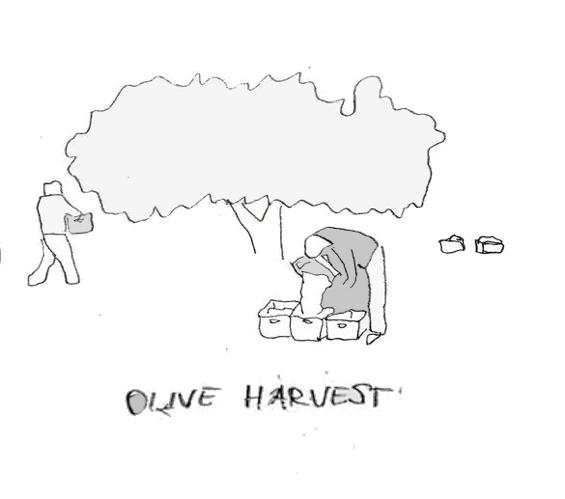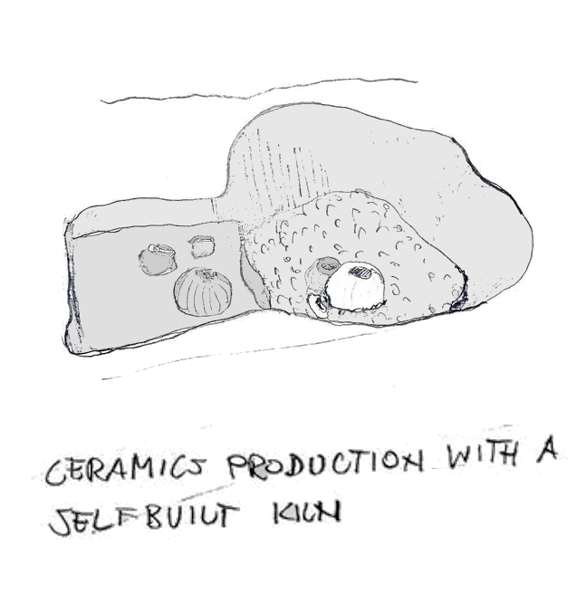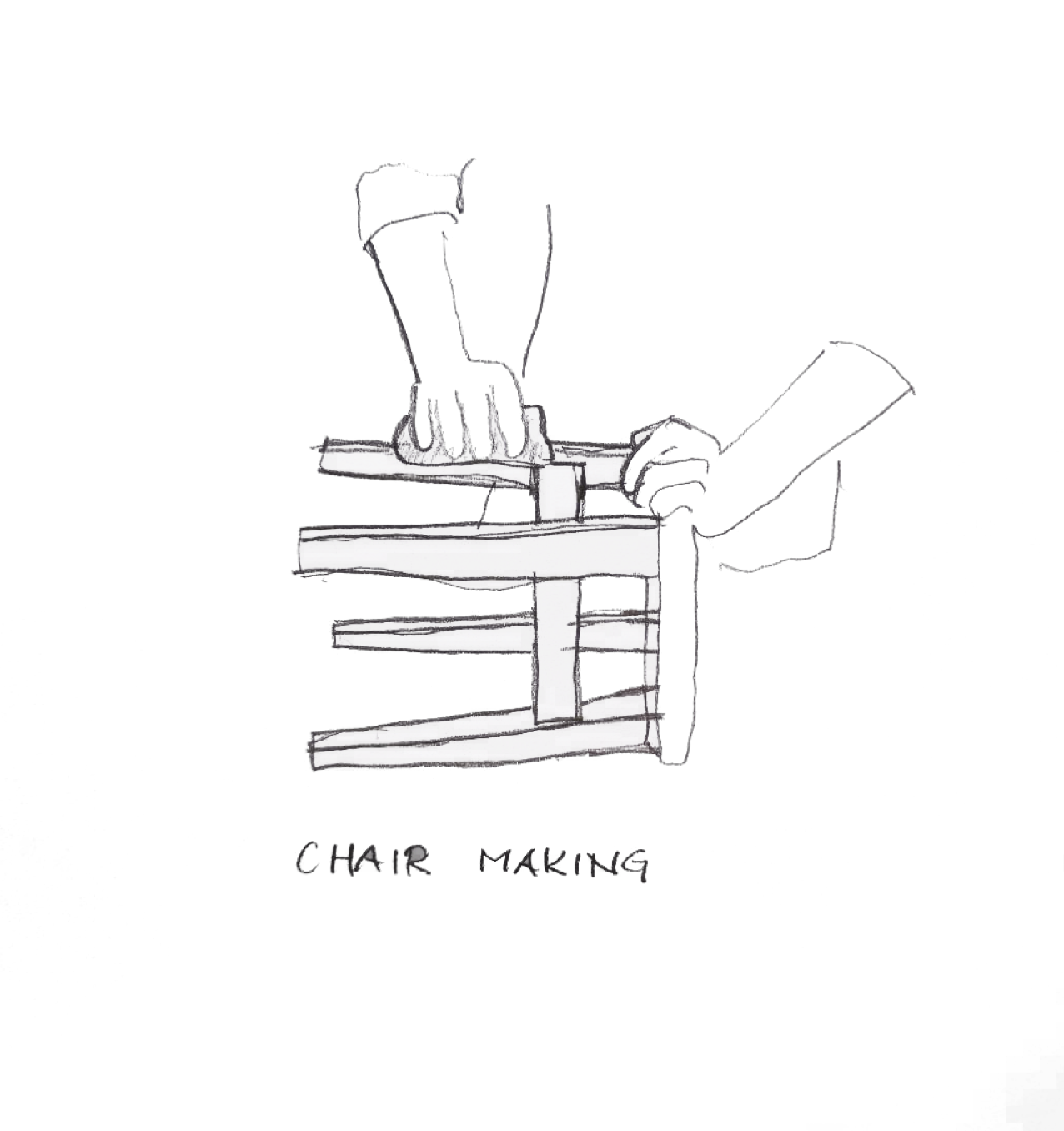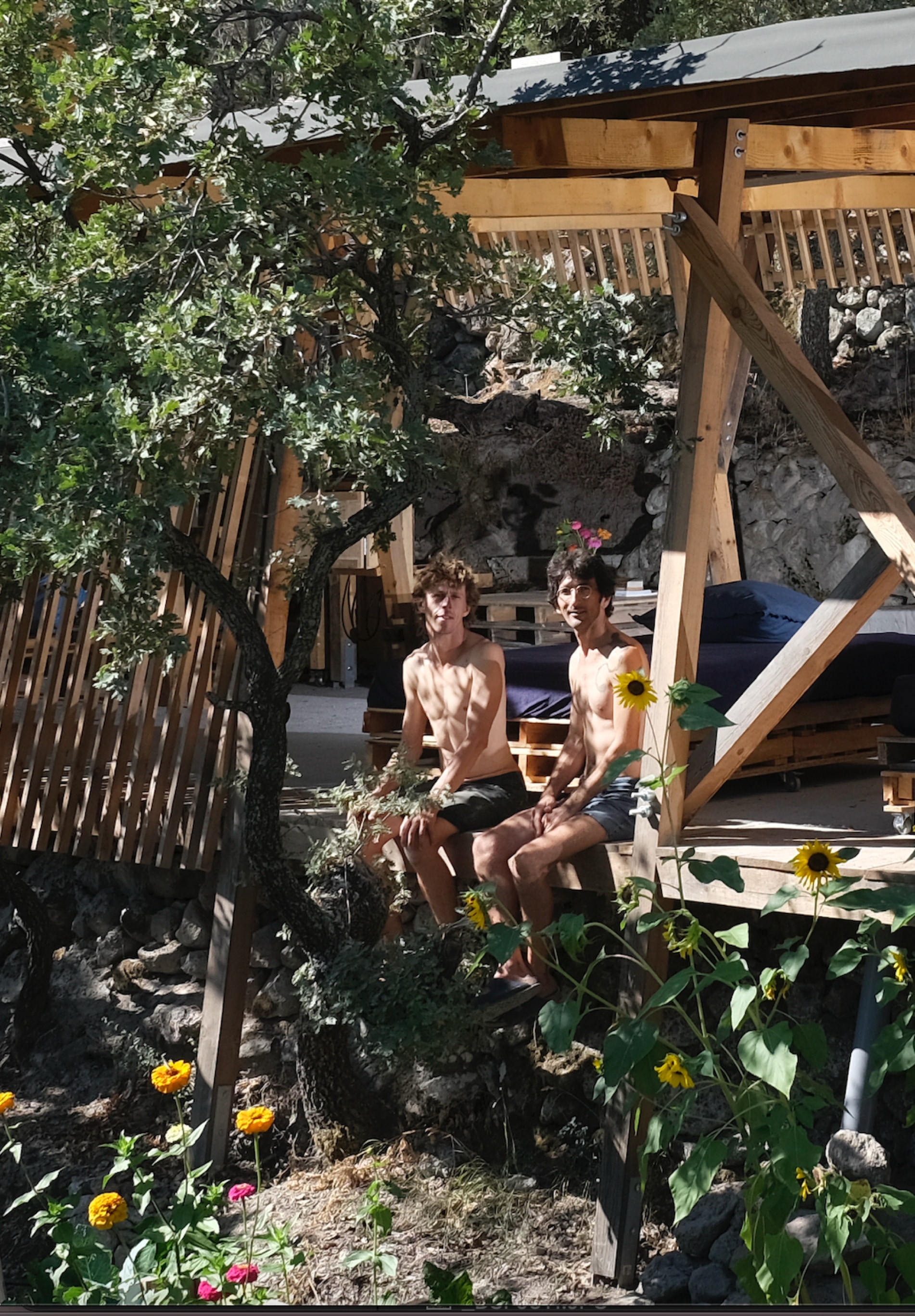
HERMITAGE SYKAMINEA
CREATIVE COUNTRYSIDE

Andreas Sell is the founder and operator of the Hermitage Sykaminea. The last two summer programs gave rise to the Lesvos Wool and Hermitage Sykaminea Gathering initiatives. Together with Julie Loi, Sell started the wool project in 2020 and organised the Hermitage Sykaminea Gathering in 2022 with EJ William, Eirini Tiniakou and Walter Götsch. In 2023, the residency program of the Hermitage Sykaminea began, for which groups can apply annually with project proposals on the theme of ecology.
The Hermitage is in the north of Lesvos on one of the slopes of Mount Lepetimnos, with view over the sea till Turkey. It is located in an olive grove, two kilometers away from the village Sykaminea.
Lesvos is one of the easternmost North-East Aegean Islands and lies very close to the Turkish coast. This volcanic island rises nearly 1000 meters above sea level at some points. Mountains dominate the island. Almost half of the island are hills with olive and fruit trees. Forests, mostly with Mediterranean pines, oaks and walnut trees, cover about 20% of the surface.
In the east of the island there is a long tradition in growing olives. Along the hills there are terraces forming the base for olive groves in which you find many sheep. Olives and sheep are what farmers cultivate in the region since thousand of years.
The Hermitage Sykaminea Residency provides space for creative work in the north of the island of Lesvos. Residencies of two or three months are offered from April to May and October to November for groups applying with a specific proposal. Applications are accepted from groups of up to eight people from the fields of craft, design, architecture and visual arts. It is welcomed if the work project is related to an ecological theme and has a link to the island of Lesvos, but this is not obligatory. Applications will be reviewed by a jury. Once the application has been selected, the Hermitage Sykaminea will seek funding for the residency. After successful funding of the residency, the selected group receives an application commitment. The group will receive a grant consisting of travel expenses, a daily allowance and accommodation. The scholarship holders are responsible for their own food, mobility on the island and work materials.
The application process 2023 is closed.
Next application period: 01.05. - 31.05.2024
Application deadline: 31.05.2024, 23:59 EET
Applications by e-mail to:
info@hermitage-sykaminea.org
Application documents:
- Individual CV for each group member (max. 2 DIN A4 pages in PDF
format)
- Project description (max. 2 DIN A4 pages in PDF format)
- Portfolio (max. 10 DIN A4 pages in PDF format)
- Indication of the group's website (if available)
- Indication of the desired period of stay between April-May and
October-November
Only submissions of applications that are complete will be reviewed. All applicants will receive a notification with the result of their applications by 31.12.2024 (approximately).
Creative Countryside e. V. is a non-profit association that supports the Hermitage Sykaminea. The association promotes German-Greek cultural exchange and ecological projects on the island of Lesvos with a focus on sheep's wool processing. The board of the association is Orkun Akdag and Ines Schönauer. The Hermitage Sykaminea is an artist residency and a hub for the development of new social forms and ecological developments.
Creative Countryside e.V. was founded in 2022 and has so far been financed by the association members' own funds. From 2023, the association will acquire additional funding to finance stays of international project groups at the Hermitage Sykaminea. The association uses donations to pay for travel, material and subsistence costs for the project groups, as well as publications resulting from the stays, and thus promotes cultural exchange.
Please contact us if you would like to support the work of Creative Countryside e. V. with a donation. You will receive a donation receipt on request.
Thank you very much for your support!
2025
January - March: Winter break
April - September: Rental season - Book your holiday!
E-mail to: info@hermitage-sykaminea.org
October: Hermitage-Gathering
November - December: Manufacturing of wool and clay objects , olive harvest
There are 8 bed sleeping places. In addition, other guests can camp in the olive grove. The Hermitage can be rented either as a whole or just the one building (cabin) for two people or the other area with a three bedroom building and the pergola with kitchen living room and bathroom for six people.
The easiest way to make a booking request is directly at our email address info(at)hermitage-sykaminea.org. We will then send you a booking confirmation by email.
The current occupancy is marked in grey in this calendar.
Prices
Minimum stay 7 days.
Between May and October the price is 150€ plus 15% tax per night for the whole place. The cabin for two persons is 50€ + 15% tax per night and for the pergola and sleeping house for six people the charge is 110€ + 15% tax per night. For camping there is an extra charge of 15€ per person. The final cleaning costs are 140€ for the whole place, for the cabin 70€ and the pergola with sleeping house 100€. The deposit is 500€. It is payable together with the rent three weeks before arrival.
Accommodation
- two double bedrooms, each with a double bed mattress
- one room with two single beds
- one house with two single beds and kitchen
- one bathroom
- a pergola with kitchen and communal lounge
The Hermitage Sykaminea offers felting courses for holiday groups. In a one-week course, participants learn the basics of wet felting. Groups of 4-8 people can gain an insight into the craft of washing, picking, carding and felting, after which each participant can take home the felt object they have made.
The following prices apply to the course
Course fee per participant and for a 7-day course:
180€ plus material fee from 30€ depending on the project
Customised courses
We are also happy to organise courses with a different time frame.
Many things are possible, please contact us!
In summer 2020 and 2021, the Hermitage initiated summer programs. Almost 30 artists, architects, musicians, designers, curators and photographers spent time at the Hermitage to work together and alone on projects of their own choosing. Workshops, concerts, discussions, excursions, film screenings, craft and artistic work took place. New collaborations and projects have emerged from the summer programs.
These programs gave rise to the establishment of an artist residency, which received its first group in 2023.
Hermitage Sykaminea Gathering 2022




























